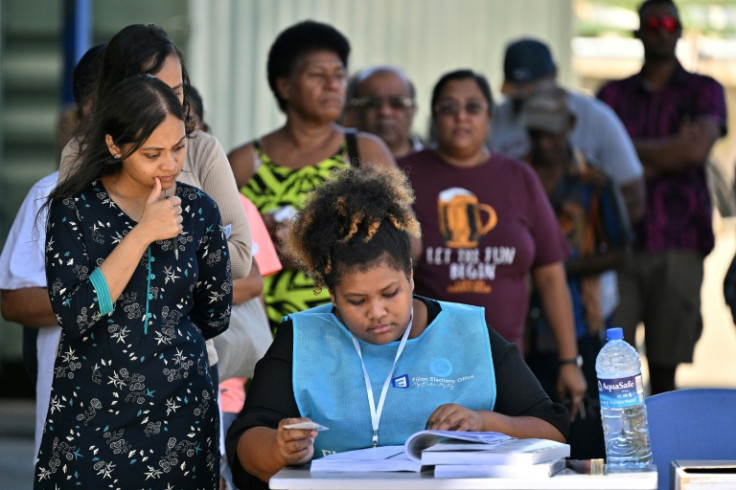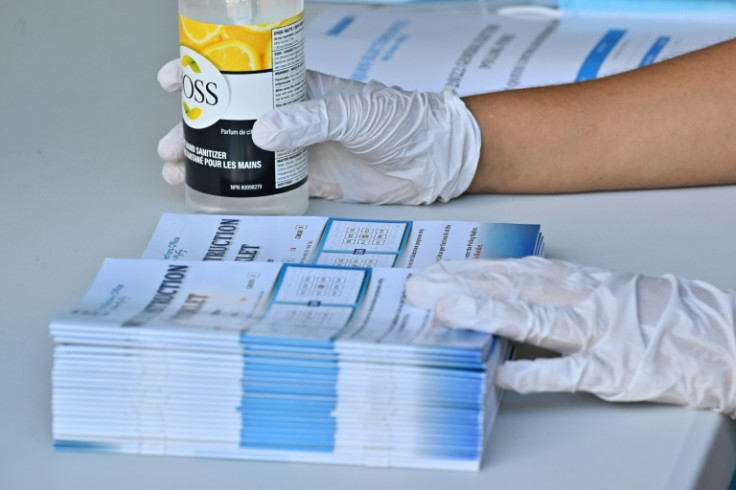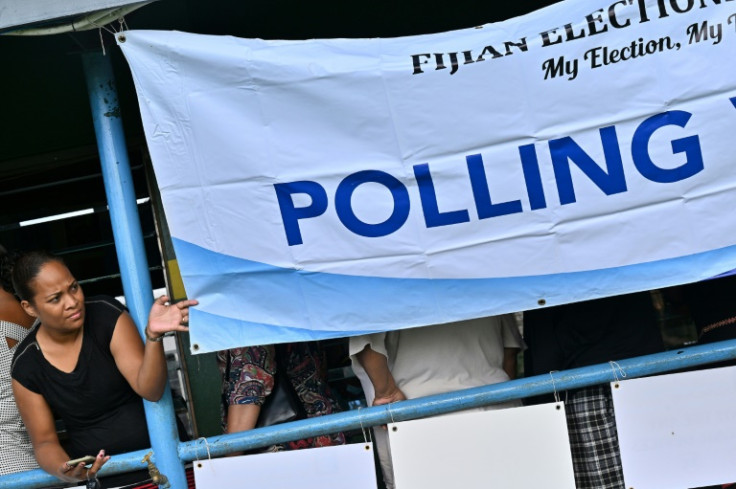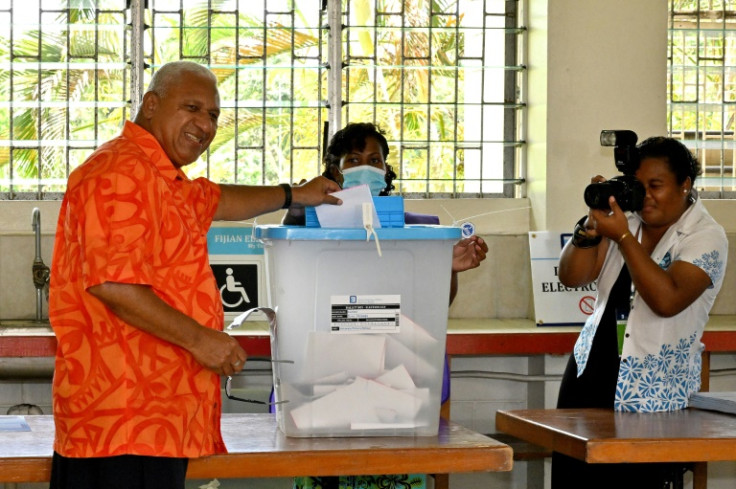'Anomaly' Derails Fiji Election Count

Fiji's election count was plagued by a long delay and technical breakdown Thursday, as former coup leader turned prime minister Frank Bainimarama aimed to extend his 16-year grip on power.
His chief political rival Sitiveni Rabuka, a two-time coup leader nicknamed "Rambo", held an early lead on Wednesday night before results were abruptly taken offline.
Bainimarama's governing Fiji First party was in front when the reporting resumed some four hours later.
In a hastily-arranged press conference in the early hours of Thursday morning, election supervisor Mohammed Saneem said vote counters had detected an "anomaly".
He cited one "mismatch" between votes cast and a candidate's tally.
"To cure this the Fijian Elections Office had to review the entire mechanism through which we were pushing out results," he said.
The late-night irregularity dominated local news bulletins and was met with scepticism and anger on social media, but Saneem defended the integrity of the count.
"Everyone is too hungry for conspiracy theories," he told reporters.
By dawn, Fiji First held around 45 percent of the vote with more than half of the country's 2071 polling stations counted.
Rabuka's People's Alliance and its coalition partner -- the National Federation Party -- had just under 42 percent between them.
Bainimarama, 68, seized control of Fiji in a 2006 putsch, but legitimised his grip on power with election wins in 2014 and 2018.
Fiji now faces a nervous wait -- ballots must be tallied from remote islands and highland villages -- and final results may not be known for days.
The election is being seen as a test of the nation's fledgling democracy.
Asked whether he would accept the outcome, win or lose, Bainimarama said "of course" as he cast his ballot in the capital Suva with his granddaughter in tow.
He then lashed out at reporters, suggesting they ask "better questions."
Rabuka said he would readily concede defeat if beaten, but questioned whether Bainimarama would do the same.
"I think he will not. So I'm hoping for a flood of votes in our favour, so that it makes any attempt at that course futile," he said.
In a contested vote the military could be key.
The country's top commander has said the armed forces would respect the election result.
Blake Johnson from the Australian Strategic Policy Institute said any arguments about the result would likely be dealt with through the courts, rather than another coup.
"Should Rabuka win, this will be Fiji's first test at completing a peaceful handover of power in nearly two decades," he told AFP on Wednesday.
"If Bainimarama refuses to accept defeat, we could see several legal challenges tie up the parliamentary and judicial systems for some time."
Rabuka -- who is also a former Fijian international rugby player and Commonwealth Games hammer thrower -- has signalled that Fiji could loosen its ties with China if he is elected.
Fiji has grown closer to Beijing under Bainimarama, who used a "look north" policy to stabilise the economy after Australia and New Zealand hit the country with heavy trade sanctions in retaliation for his 2006 coup.
The buildup to the vote was marked by a strict media blackout, preventing local journalists from covering any aspect of the election for 48 hours before voting day and until polls closed.
Office worker Dee Atama said that there was a need for change in Fiji, and that more should be done for younger voters.
"Something for the younger ones, because they will be the ones leading the future," she told AFP from a voting booth at a Suva school.
Salesman Niraj Prasad, 50, said not everyone in Fiji favoured a change of government.
"Some people say it's time for a change," he told AFP from a voting centre on the outskirts of Suva.
"Probably this is a mixed feeling... it depends on what the government is doing."
Fiji has a population of some 900,000 and is heavily reliant on its tourism industry -- which was badly damaged by the Covid-19 pandemic.




© Copyright AFP {{Year}}. All rights reserved.





















